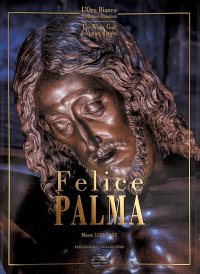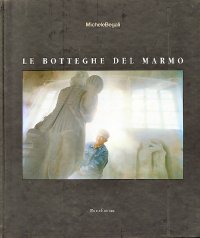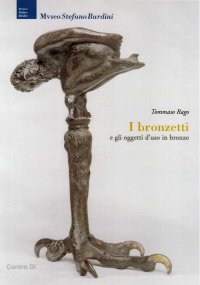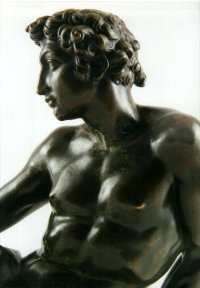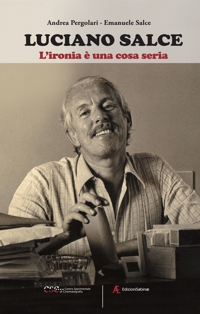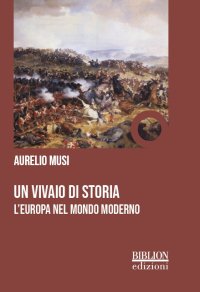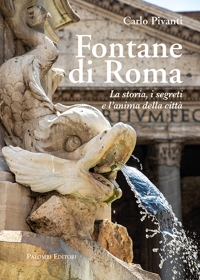Felice Palma. Massa 1583-1625. Collezione / Collection.
Texts by Andrei Cristina, Ciarlo Nicola, Federici Fabrizio, Claudio Casini and Sara Ragni.
Italian and English Text.
Pontedera, 2024; bound in a case, pp. 289, b/w and col. ill., b/w and col. plates, cm 24,5x34.
(L'Oro Bianco. Straordinari Dimenticati. The White Gold Forgotten Masters).
cover price: € 160.00
|
Books included in the offer:
Felice Palma. Massa 1583-1625. Collezione / Collection.
Texts by Andrei Cristina, Ciarlo Nicola, Federici Fabrizio, Claudio Casini and Sara Ragni.
Italian and English Text.
Pontedera, 2024; bound in a case, pp. 289, b/w and col. ill., b/w and col. plates, cm 24,5x34.
(L'Oro Bianco. Straordinari Dimenticati. The White Gold Forgotten Masters).
FREE (cover price: € 160.00)
Le botteghe del marmo
Italian and English Text.
Ospedaletto, 1992; bound, pp. 153, 10 b/w ill., 60 col. ill., cm 24x29.
(Immagine).
FREE (cover price: € 34.49)
Museo Stefano Bardini. I Bronzetti e gli Oggetti d'Uso in Bronzo
Edited by Nesi A.
Firenze, 2009; paperback, pp. 191, 102 b/w ill., 7 col. ill., cm 17x24,5.
(Museo Stefano Bardini).
FREE (cover price: € 30.00)
Bronzetti e Rilievi dal XV al XVIII Secolo
Bologna, 2015; 2 vols., bound in a case, pp. 729, ill., col. plates, cm 21,5x30,5.
FREE (cover price: € 90.00)
Cina perduta. Nelle fotografie di Leone Nani
Skira
Edited by Bulfoni C. and Pozzi A.
Milano, 2003; paperback, pp. 224, 182 b/w ill., cm 24x28.
(Fotografia).
series: Fotografia
Other editions available: French Edition (ISBN: 88-8491-673-9).
ISBN: 88-8491-570-8 - EAN13: 9788884915702
Subject: Collections,Photography
Period: 1800-1960 (XIX-XX) Modern Period
Places: Out of Europe
Extra: Oriental Art and Culture
Languages: 
Weight: 1.686 kg
The name of father Leone Nani will not be found in the annals of photography. His name is found however in the archives of the Pontificio Istituto Missioni Estere (Pime), from which he was sent to China at the beginning of the twentieth century. Yet the quality of the images, the quantity and choice of subjects and his extraordinary ability to handle the most disparate situations earned Nani the right to be considered a great photographer in every way.
Leone Nani (Albino, 1880-1935) left for China at an early age, 23 years, to take the apostolic vicariate of south Shaanxi in the mission of Hanzhong, an internal region between the Great Wall and the river Han. He remained in China from 1904 to 1914 and in these ten years of activity he visited many villages, discovering social and cultural realities that other westerners would have reached with much difficulty.
Using a mobile studio and working for the most part with glass sheets which he developed and printed himself, Nani took photographs of young couples, families, peasants and craftsmen capturing scenes of everyday life, religious ceremonies, architecture and landscapes revealing his talent as an observer of local customs and as a photo reporter.
This extraordinary material reproduced in duotone prints, bears witness to one of the most complex periods in the history of the ancient Chinese Empire: a period of violent transition which marked the end of the Qing dynasty and the advent of the Republic.
Father Nani stands at the end of an era: the era of the great pioneer photographers, who, from the second half of the nineteenth century - amidst infinite difficulties, using makeshift equipment and often in dramatic conditions reproduced aspects of China that would otherwise have remained unknown or would only be known through the accounts of travellers.
Out of Catalog






